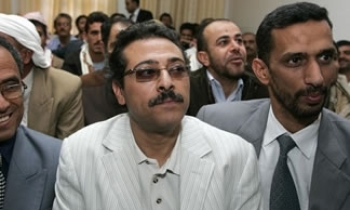afrol News, 2 November - Since Mozambique's 1991 press law came into force, Mozambique's reputation for press freedom has risen substantially and it is perhaps one of the most liberal in the world. Now, however, the government has announced a public debate on proposed amendments the law. But the sector warns about the changes and holds that most Mozambican journalists yet have to see the draft amendments.
Felisberto Tinga, director of the Mozambique government press office (GABINFO) on Tuesday announced that in the light new "contexts and realities," society was "sometimes compelled to revise and reformulate, or to create new instruments in line with these new realities. This is the framework in which we are proposing to revise the press law."
Mr Tinga, at a Maputo press conference, said that the debate would be extended to all provincial capitals, but that it would only last for two weeks.
According to Paul Fauvet, the head of the English-language service of the Mozambican state-owned news agency AIM, this time span is "clearly insufficient", since the vast majority of Mozambique's journalists had not yet seen the draft amendments and since the 1991 law has worked so well. He asks "Why bother to amend it?"
"Perhaps the most startling change proposed in the amendments is the introduction of a licensing system for journalists. Should this amendment be passed, nobody can be a journalist without acquiring a licence. This flies in the face of the general principle upheld by press freedom bodies that there should be no official licensing of journalists", Mr Fauvet warned today, in a release from the state news agency.
"No doubt it can be argued that the current government, with its proven track record of respecting press freedom, would never prevent any journalist from obtaining a licence. But laws should not be written with just the present government in mind. For what might happen in a couple of decades time, with a different government, a different president and, for all any of us know, a different ruling party?" AIM's Mr Fauvet asks with concern.
The Paris-based NGO Reporters sans Frontières (RSF), in their latest Worldwide Press Freedom Index ranked the Mozambican press in 45th position out of 168 countries, as freer than the United States (53rd position) and several European countries.
Offences against press freedom in Mozambique are seldom. Last May, three provincial journalists were freed after being held illegally for a week. Sebastião Canjera, the editor of the privately-owned newspaper 'Mabarwe', João Mascarenhas, his news editor, and Patreque Francisco, one of his reporters, were arrested on 3 May on the orders of deputy prosecutor Jose Abede and freed a week later.
Deputy prosecutor Jose Abede acted in response to libel action brought by influential Barue district businessman Tiago Pangaia over a report that he was arrested for allegedly stealing 70 head of cattle and then freed at the deputy prosecutor's behest for lack of evidence.
There is provision for prison sentences for libel in Mozambique, but the courts never apply them and it is very rare for journalists to be arrested, RSF admits. The anterior case goes back to June 2003, when José Armando Chitula, the editor of the daily 'Imparcial', was arrested at Maputo airport and held for 24 hours.









